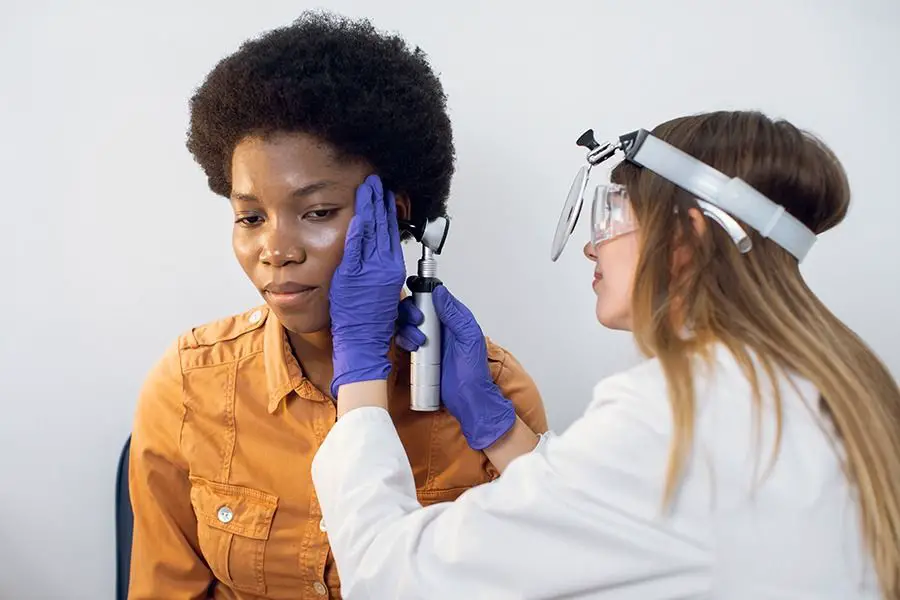The Potential of Gene Therapy for Addressing Meningitis-Induced Hearing Loss
Gene therapy, a rapidly advancing field in medicine, offers potential solutions to address meningitis-induced hearing loss. By targeting specific genes or introducing new genetic material into the body, gene therapy aims to correct or compensate for genetic mutations that may contribute to hearing loss. In the context of meningitis, gene therapy could potentially target genes involved in the inflammatory response, reducing the severity of the infection and the likelihood of hearing loss.
Though gene therapy for meningitis-related hearing loss is still in the experimental stages, several preclinical studies have shown promising results in animal models. As research progresses, gene therapy could become a groundbreaking treatment option for those affected by meningitis and hearing loss. Parents and healthcare professionals should stay informed about the advances in gene therapy to be prepared for potential future treatment options.
Innovative Technologies Aiding in the Detection and Management of Meningitis and Hearing Loss
Technological advancements play a crucial role in detecting and managing meningitis and hearing loss. Innovative diagnostic tools, such as rapid diagnostic tests and advanced imaging techniques, enable early detection of meningitis, which is critical for minimizing complications like hearing loss. Furthermore, advances in hearing assessment technologies, including automated auditory brainstem response (AABR) testing and otoacoustic emissions (OAE) testing, allow healthcare professionals to identify hearing loss in infants and young children more efficiently.
In addition to diagnostic tools, new technologies are also improving the management of hearing loss. Digital hearing aids and cochlear implants have become more sophisticated, offering improved sound quality and better integration with other electronic devices. Assistive listening devices, such as FM systems and smartphone apps, can also help those with hearing loss communicate more effectively. By staying informed about the latest technological advancements, parents and healthcare professionals can ensure that children affected by meningitis and hearing loss receive the best possible care.
The Role of Patient Advocacy in Shaping the Future of Meningitis and Hearing Loss
Research Patient advocacy plays a crucial role in shaping the future of meningitis and hearing loss research, treatment, and support. Advocacy organizations and individuals affected by these conditions work tirelessly to raise awareness, promote research, and provide support to families dealing with meningitis and hearing loss. By giving a voice to those affected, patient advocates can influence public policy, funding priorities, and the development of new treatments and technologies.
As a concerned parent, you can also become an advocate for your child and others affected by meningitis and hearing loss. By joining or supporting advocacy organizations, participating in awareness campaigns, and sharing your story, you can make a difference in the lives of those affected by these conditions. Together, we can help shape a better future for children and families dealing with meningitis and hearing loss.
NAVIGATING THE DIFFERENT LEVELS OF DEAFNESS
The Emotional and Social Impact of Meningitis and Hearing Loss on Children and Families
Meningitis and hearing loss can have significant emotional and social consequences on affected children and their families. Coping with a meningitis diagnosis, managing hearing loss, and adjusting to new communication methods can be overwhelming and challenging. By understanding the emotional and social implications of these conditions, parents can better support their children and help them adapt to their new reality.
Children with meningitis-related hearing loss may experience feelings of isolation, frustration, and low self-esteem due to communication difficulties. It is essential to provide emotional support and reassurance to these children, helping them build resilience and confidence. Encouraging social interactions and providing opportunities for them to connect with peers, both with and without hearing loss, can help alleviate feelings of isolation.
Parents and caregivers may also experience emotional challenges, including feelings of guilt, grief, or helplessness. It is essential for parents to seek support for themselves, whether through counseling, support groups, or connecting with other families facing similar challenges. By taking care of their emotional well-being, parents can better support their child through the challenges of meningitis and hearing loss.
Lipo-Flavonoid Plus, Tinnitus Relief for Ringing Ears
Considered the most effective over-the-counter solution by ENTs, this product comes highly recommended by doctors for reducing ear ringing. Its effectiveness has been acknowledged and trusted by medical professionals in the field.
Please note that exposure to heat or sunlight may cause melting or damage to the product. To ensure the product’s integrity, customers are advised to be present during the delivery process.
Formulated with a natural lemon bioflavonoid complex, this product contains a rich blend of essential vitamins and nutrients such as Vitamins C, B1, B2, B6, B12, Calcium, Choline Bitartrate, Inositol, Niacin, and Pantothenic Acid. These ingredients provide vital nutritional support for the inner ear, making it beneficial for individuals with tinnitus and Meniere’s syndrome.
Early Intervention Services in Supporting Children with Meningitis-Related Hearing Loss
Early intervention services are crucial in supporting the development and well-being of children with meningitis-related hearing loss. These services, which may include audiology, speech therapy, occupational therapy, and physical therapy, can help address the unique needs of each child and provide them with the necessary tools for success.
Research has shown that early intervention for children with hearing loss is critical for language development, academic achievement, and social-emotional well-being. By identifying and addressing hearing loss as early as possible, parents can help maximize their child’s potential and ensure they have access to appropriate support services. To access early intervention services, parents should consult with their healthcare provider, who can help coordinate and connect them with the necessary resources.
Tinnitus: why it’s still such a mystery to science
Encouraging Inclusivity and Accessibility for Children with Meningitis and Hearing Loss in Educational Settings
Creating inclusive and accessible educational environments is vital for the success and well-being of children with meningitis and hearing loss. Schools and educational institutions can implement various strategies to promote inclusivity and accessibility for these students, such as providing appropriate accommodations, using assistive listening devices, and fostering a supportive and understanding community.
Parents can advocate for their child by working closely with teachers, administrators, and support staff to ensure their child’s unique needs are met. Providing training and resources for educators on hearing loss and effective communication strategies can help create a more inclusive environment for all students. Additionally, parents should consider joining or forming parent support groups to share experiences, resources, and advocate for systemic changes that benefit children with meningitis and hearing loss in educational settings.
By fostering inclusive and accessible environments, parents, educators, and communities can help ensure that children with meningitis and hearing loss have the opportunity to thrive academically, socially, and emotionally.
The Importance of Vaccination and Prevention Strategies for Meningitis and Hearing Loss
Vaccination is a vital strategy in preventing meningitis and its complications, including hearing loss. By protecting against various types of meningitis-causing bacteria, vaccines can help reduce the risk of this serious infection and its potential long-term consequences. Parents should ensure that their children receive all recommended vaccines according to the established immunization schedule.
In addition to vaccination, parents can adopt other prevention strategies to reduce the risk of meningitis and hearing loss. Practicing good hygiene, such as frequent handwashing and avoiding close contact with sick individuals, can help minimize exposure to meningitis-causing pathogens. Moreover, maintaining a healthy lifestyle, including a balanced diet, regular exercise, and sufficient sleep, can contribute to a robust immune system that can better fight off infections.
Gene Therapy for Addressing Meningitis-Induced Hearing Loss
Gene therapy is an emerging field in medical research, offering hope for various conditions, including meningitis-induced hearing loss. Gene therapy involves introducing, modifying, or replacing defective genes with healthy ones to treat or prevent specific diseases. Researchers are exploring the potential of gene therapy to repair or regenerate damaged hair cells in the inner ear, which could potentially restore or improve hearing function in individuals with meningitis-related hearing loss.
While still in its early stages, gene therapy research has shown promise in preclinical studies, with some successful results in animal models. As the field advances and more research is conducted, gene therapy may become a viable option for addressing meningitis-induced hearing loss in the future. Parents and caregivers of children affected by meningitis and hearing loss should stay informed about the latest advancements in gene therapy research and consult with their healthcare providers about potential treatment options.
Innovative Technologies Aiding in the Detection and Management of Meningitis and Hearing Loss
Advancements in technology have led to innovative tools and devices that can aid in the detection and management of meningitis and hearing loss. Early detection of both conditions is crucial for prompt treatment and better outcomes. Modern diagnostic tools, such as advanced imaging techniques and molecular diagnostics, can help healthcare providers quickly identify meningitis-causing pathogens and determine the most effective treatment strategies.
For individuals with meningitis-related hearing loss, assistive listening devices and hearing aids have seen significant improvements in recent years. Digital hearing aids and cochlear implants can now provide better sound quality and more natural listening experiences. Additionally, smartphone apps and other assistive technologies have emerged to help individuals with hearing loss communicate more effectively and navigate their daily lives.
By staying informed about the latest technological advancements in detection and management, parents and caregivers can ensure that their children have access to the best possible care and support.









